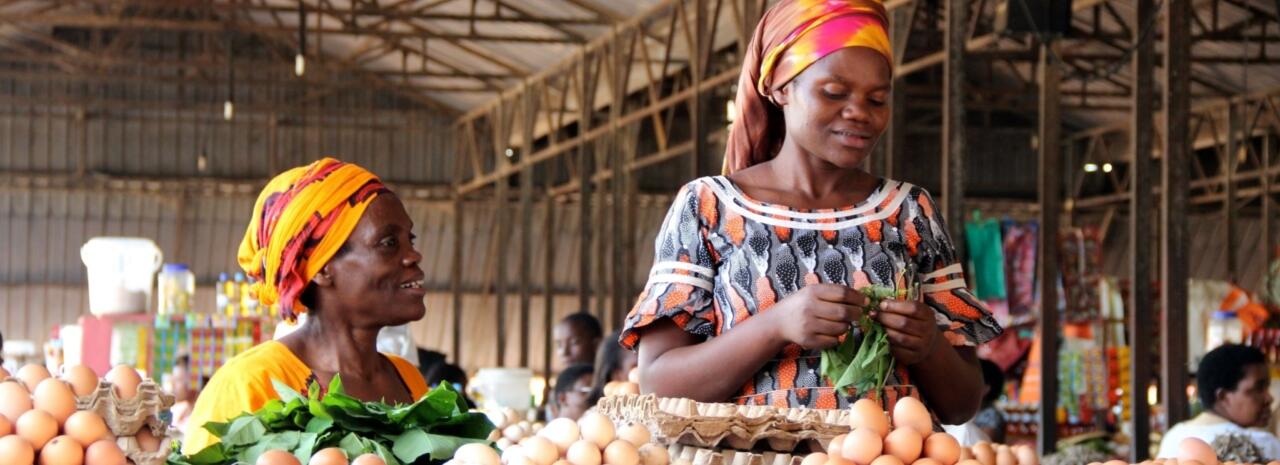
Credit guarantee scheme to target barriers for women SMEs
Micro, small, and medium enterprises are the key driver of economic growth in Africa as the largest component of the private sector. These are frequently women-led enterprises, primarily concentrated in the agricultural and service sectors. Women-led businesses tend to be smaller and less formal, and face particular challenges in accessing finance and growing businesses.[1]
Women-led MSMEs (WSMEs) encounter unique barriers to accessing finance in addition to those faced by MSMEs in general. These include limited access to collateral, low self-perception of creditworthiness resulting in self-selection out of the credit market, low financial literacy, relatively higher risk aversion, and specific socio-cultural factors that make running and growing their businesses more difficult.
Additionally, banks can have limited appetite to lend to women SMEs because they perceive them to be riskier customers and more expensive to serve. Often the internal capacity of banks to provide a women-specific offering further contributes to this reluctance.
To push forward the agenda of gender equality and women’s empowerment across the continent, the African Development Bank (AfDB) established the Affirmative Finance Action for Women in Africa (AFAWA), a flagship initiative that focuses on increasing inclusive finance for women entrepreneurs on the continent. AFAWA’s primary objective is to bridge the $42 billion finance gap for women entrepreneurs in Africa and to unlock their entrepreneurial capacity and full potential.
The AFAWA initiative is unique as it offers a multi-dimensional approach to remove the constraints women entrepreneurs face in Africa. AFAWA aims to unlock up to $5 billion of financing for WSMEs by leveraging the AfDB’s financial traditional instruments (lines of credit, trade finance and equity funds) and through the AFAWA Guarantee for Growth (G4G), an innovative mechanism de-risking women entrepreneurs and enhancing financial institutions’ appetite for lending to WSMEs.
Against this backdrop, the AfDB commissioned Genesis Analytics to conduct a baseline study on the status of access to finance for women SMEs in 16 sampled countries across Africa: Angola, Benin, Burkina Faso, Cameroon, Côte d'Ivoire, DRC, Ghana, Kenya, Morocco, Niger, Nigeria, Rwanda, South Africa, Tanzania, Togo, Zambia.
This analysis included primary and secondary research and focused on behavioural and gendered differences in access. Genesis conducted over 60 stakeholder consultations and a survey of 800 women SMEs across the 16 markets.
Desktop research focused on three main facets:
- The economic outlook: this involved analysing the macroeconomic environment, the enabling environment as well as current support for MSMEs.
- A demand-side analysis: this involved analysing the MSME landscape, uptake of financial services among WSMEs and barriers to financing women.
- A supply-side analysis: this involved analysing the level of activity within the financial services sector as well as detailing any WSME-specific offerings by current banks and non-banking financial institutions.
Based on this research, we were able to provide recommendations to the AfDB along four main verticals:
- Programme specific recommendations relating to the specific structure in which the proposed interventions should be set up.
- Enabling environment recommendations speaking to the manner in which AfDB may collaborate with national governments or development partners to improve the operating environment within a given country.
- Demand-side recommendations relating to how AfDB may implement interventions that assist WSMEs in unlocking funding or improve their entrepreneurial competence.
- Supply-side recommendations speaking to interventions that may assist credit institutions in providing more financing.
Ultimately, findings from the study supported the AfDB in developing the relevant credit guarantee schemes targeting women SMEs.
[1] Profiting from Parity : Unlocking the Potential of Women's Business in Africa, World Bank, 2019. Available here, Women-Owned SMEs: A Business Opportunity for Financial Institutions, IFC, 2014. Available here, Women Self-Selection out of the Credit Market in Africa, AfDB, 2019. Available here, Women, Business and the Law, World Bank, 2021. Available here, Why women-led businesses are still less likely to secure funding, The New Times, November 2020. Available here